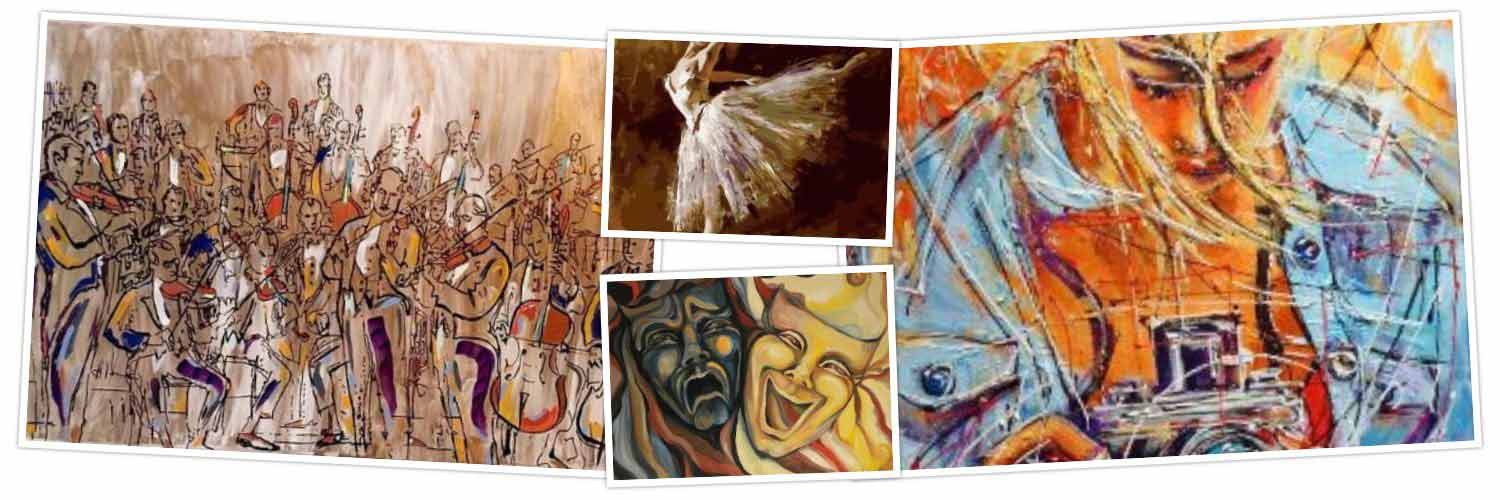DANIEL ANASTASIO – Pianist, Artistic Director of Agarita Chamber Players
(Agarita was founded in 2018 by Anastasio, Marisa Bushman, Ignacio Gallego and Sarah Silver Manzke)
By JASMINA WELLINGHOFF, Editor —
Agarita Chamber Players is the newest chamber ensemble in town. Could you tell us about the motivation and the goals you and your three colleagues had in mind when you founded Agarita?
It happened two years ago when I got the job at San Antonio college as a faculty member. I had just finished my doctorate in the Northeast and returned to San Antonio. Marisa, whom I knew because I had played with her a few times, said to me, “I am trying to form a chamber group with others in the Symphony, and my husband Ignacio. Would you like to join in?” So, it was Marisa’s idea to form a chamber group. And I said yes. Chamber music is very important to my life. We thought we would just get together and play great music. But as soon as we actually got together, it was clear that we all had some really big ideas. I had ideas about the programming, Sarah and Marisa had ideas about collaborations and funding, and Ignatio had a ton of artistic ideas, too, and also about education. We quickly realized that collaboration (with other artists – visual artists, dancers, photographers, poets, etc.) would create something different, exciting and fresh for the public. We hoped to bring in audiences that would not normally come to a classical music concert.

Has it worked?
Oh, absolutely! A lot of our audience members have never been to a classical music concert before. That keeps us on our toes. We always try to program a mix of new and old music. We have had premieres of brand-new works as well as music from the Renaissance. We have very eclectic programming as well as an eclectic group of collaborators. There’s something for everyone in our season.
Your concerts are always free. How can you afford to do it that way?
That is part of our mission. We want our concerts to be accessible to all of San Antonians, regardless of economic or social status. Surprisingly to us, as our presence in the community grew, so did the support from the community. Most of the money raised comes from private donations but we also have sponsors like the Greehey Family Foundation, NuStar and H-E-B.
Define your role as the group’s artistic director?
I am in charge of programming but, of course, I run everything by everybody, so it isn’t totally just my choices. What I like about this group is that everyone is doing a little bit of everything. So, I do some of the administration and email contacting as well. And if someone else in the group has an artistic idea, we never shut it down. We respect everybody’s ideas. And we have become friends along the way. As the artistic director, I am also in charge of speaking to the collaborators who will be working with us before I come up with the program for each concert.
All four of you have other full-time jobs. Is that correct?
Yes, I teach full-time at San Antonio College. Marisa and Sarah are members of the San Antonio Symphony, and Ignacio is the assistant director of the string program at Alamo Heights High School.
In the current COVID-19 environment you are probably teaching your students via video. How’s that working?
Surprisingly well. The students could be unhappy about all of this, but they are still willing and happy to learn. I think they need and like to have some kind of artistic outlet while they are sitting at home. Today, we don’t even have human connections since we are all isolated. The music connects them to others and gives them something to work on.
How has COVID-19 affected Agarita?
Our May 28 concert, which would have been a collaboration with a fashion designer, has been postponed. We converted everything to an online platform. Every Friday night we stream one of our concerts from the past couple of years. Thankfully, we have high quality video and audio. We introduce each video by explaining about the concept of the concert and the collaboration. And we are planning to live-stream a concert on May 28 from our houses. It will probably be on Facebook Live. In addition, we will be doing some educational videos – play a piece and talk about it – all to stay connected with our audience.
How did you come up with the name Agarita for your group?
(Laughs) I am not the best person to answer that question. Agarita is a local plant that’s thorny but produces a sweet fruit. We thought it would be a playful name with Texas roots. If you attend any of our meetings you would witness a lot energy that’s a bit thorny when we first get together because we have so many ideas that we agree to disagree about. In the end, however, we hope to produce something sweet and nourishing.
You pursued your music studies and earned degrees from Cornell and Julliard and are now working on a doctorate in musical arts. Why did you return to San Antonio?
I always knew I wanted to teach at the college level in addition to performing. When I saw that SAC had an opening, it made perfect sense. I love San Antonio as a city, and I had a lot of connections with other musicians here, so I expected to come back here to something good. But I did not expect at all something like what Agarita has brought me. It’s so much part of my life now. I am very grateful for the opportunity to be part of it.
Who or what has influenced your life the most?
In recent years, my piano teacher at Stony Brook University, Gilbert Kalish, was a profound influence on me because of his approach to music and his approach to piano. I came to him after getting my master’s at Juilliard. I was quite nervous, quite unsure about my place in the musical world, even unsure about my piano ability. Part of the reason was that I started getting serious about the piano quite late, at 19, so I felt that I was always trying to catch up. Gil was in his 80s but he, too, always felt insecure about his piano playing. He made me feel that it was OK not to be perfect. Music is about finding your own voice, not about achieving some theoretical level of perfection. He helped me find my own voice as an artist and helped me feel that it was OK to be me. That took a lot of weight off my spine.
Tell us about your experience growing up in San Antonio.
I was raised in an open-minded family. My dad was raised Christian and my mom was Jewish. We celebrated everything. They wanted us to know about both traditions but I never went to church regularly, nor did I go to synagogue. I didn’t have a Bar Mitzvah or anything like that. It was a secular household.
Even secular households have traditions. Tell us about a tradition that you still cherish and practice in your life today?
I have an answer! My grandparents were of Italian heritage. The usually joined us for Christmas and cooked these big Italian meals, a whole bunch of stuff. I have inherited that culinary inclination. Those are the dishes I make when I cook. I love to cook Italian for my friends, and as I am getting older, I want to explore it more; I want to continue the tradition. Food and cooking are powerful ways to carry down a tradition. I am getting more and more into it, even thinking about making my own pasta.
You probably get a lot of compliments as a musician. What kind of compliment is the most meaningful to you?
After a concert lots of people say ‘Great,” “Wonderful’ and blah-blah-blah. Even if the concert goes wrong, you are likely to receive plenty of praise. People are not gong to be disrespectful. But more than a compliment, if my playing makes people connect with something in their own lives, moves them in a special way, then I feel like I have done my job well.
If you had, say $5,000, to spend on non-essential needs, what would you spend it on?
Right now that would be audio/video equipment so that I could have the highest quality of streaming music from my house. Other than that, I can’t think of anything else. I have become more of a minimalist in the past few years.
Do you think there’s a silver lining to the COVID-19 situation that we are all going though?
One hundred percent! It may be an innovative time for music making. Sometimes it takes a big catastrophe to initiate innovation and change. Classical musicians and artistic directors have struggled for decades to attract new audiences. But a lot of aspects of classical music have not kept up with the times. Being forced to get involved with technology and multi-media is going to spur innovation for many, many artists. I am excited to see where all of this goes. And this is coming from someone who loves playing, Bach, Beethoven and Mozart more than any other composers. So, it’s not about the music, it’s about how we connect with audiences in the digital age.
Do you have favorite spots in San Antonio where you like to hang-out?
I love taking my dog to the various dog parks in town, especially in Hardberger Park.
Can you share with our readers a specific story/anecdote from your life?
(After a little thinking) When I was young in San Antonio, I always liked bowling with my dad at Oak Hill Lanes. Who knows if it will still be open after this crisis?! Anyway, I enjoyed it so much that once when I was 16 or 17, I went by myself and… it was utterly disappointing. It was the most depressing thing ever. I realized that the fun part was that I was doing it with my dad.
To view re-streamed Agarita concerts go to agarita.org/media
